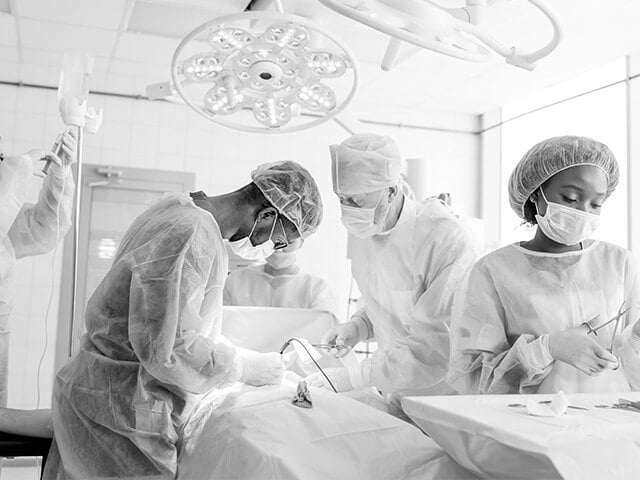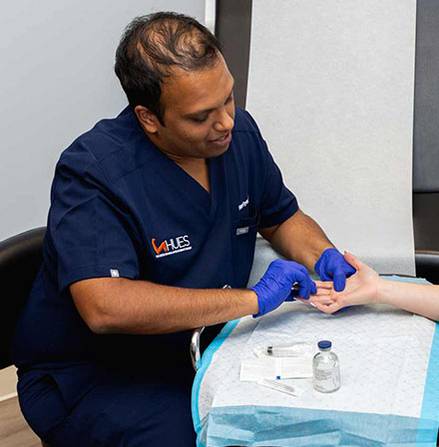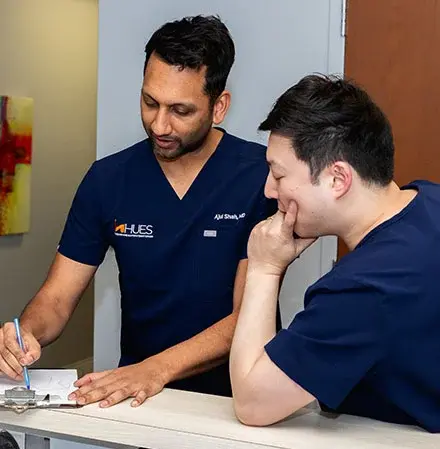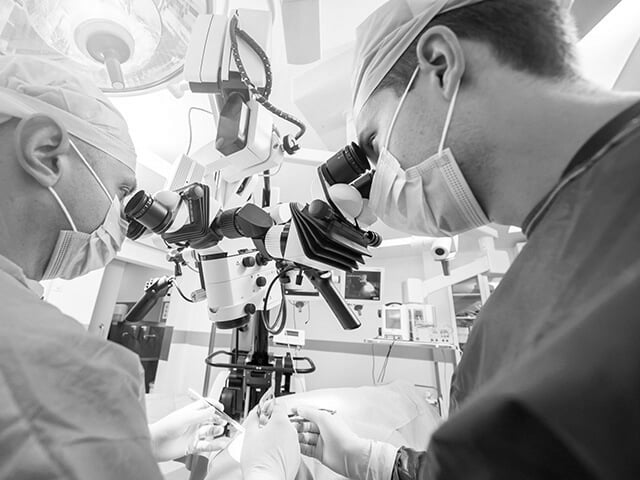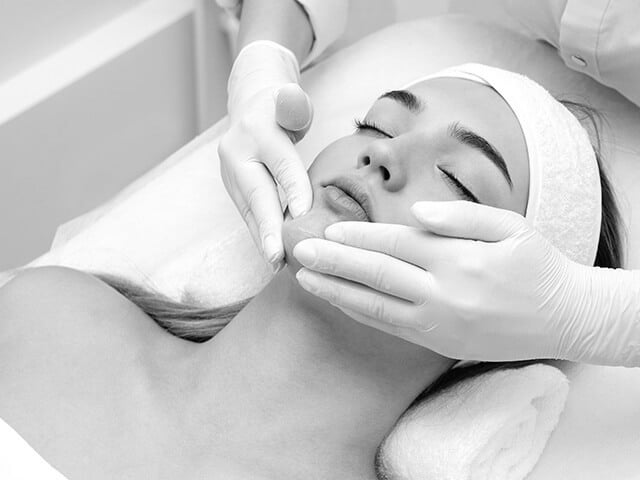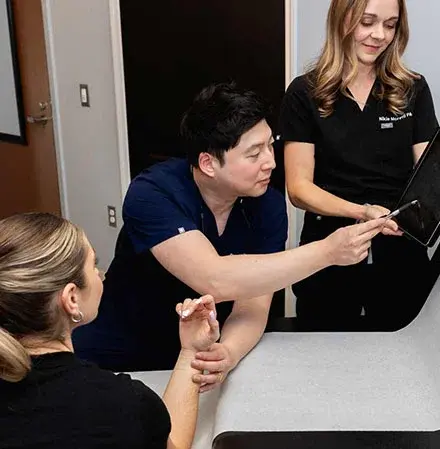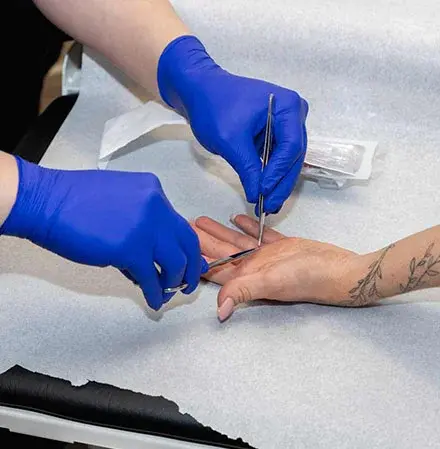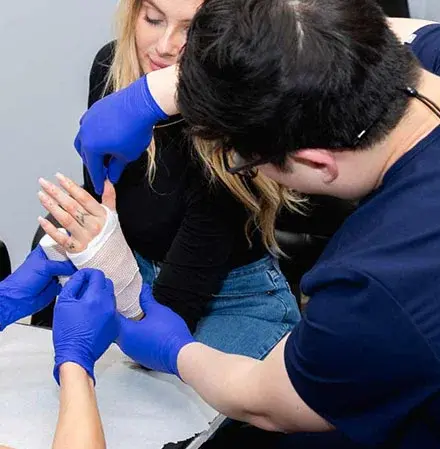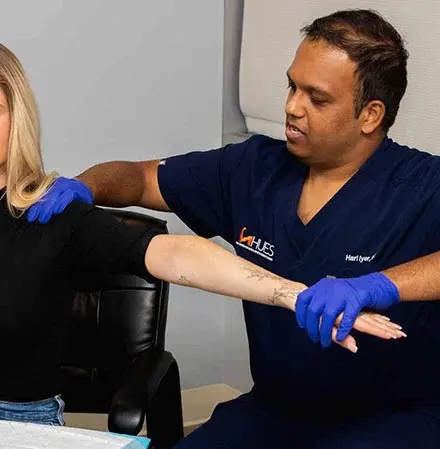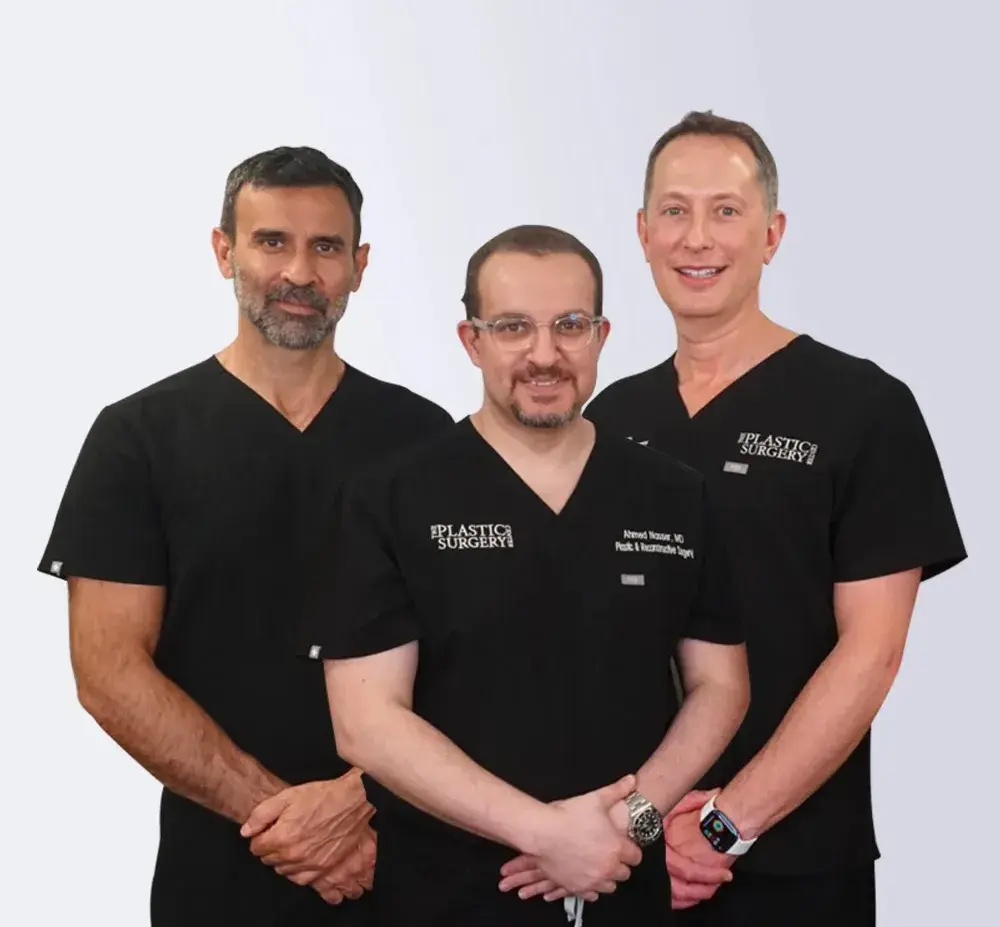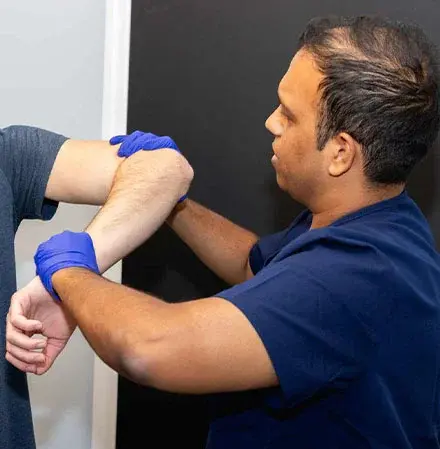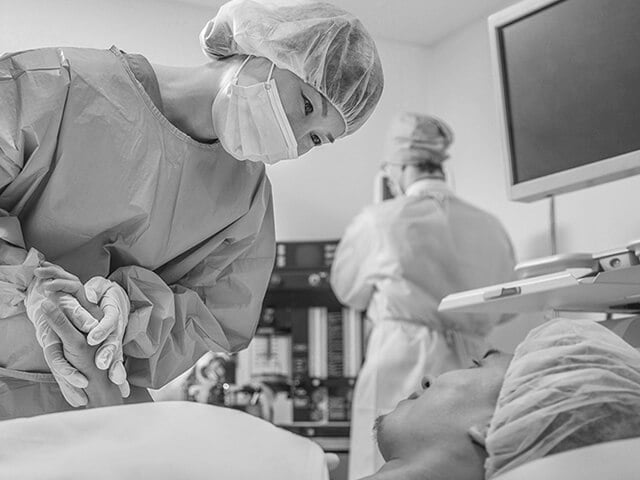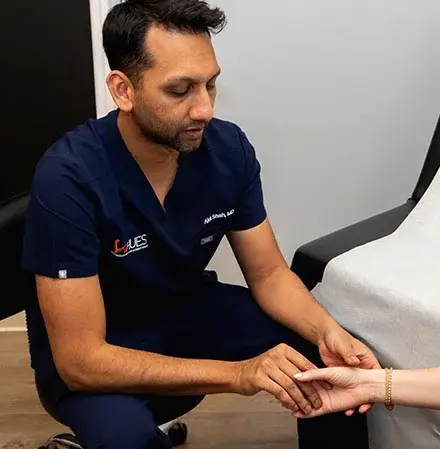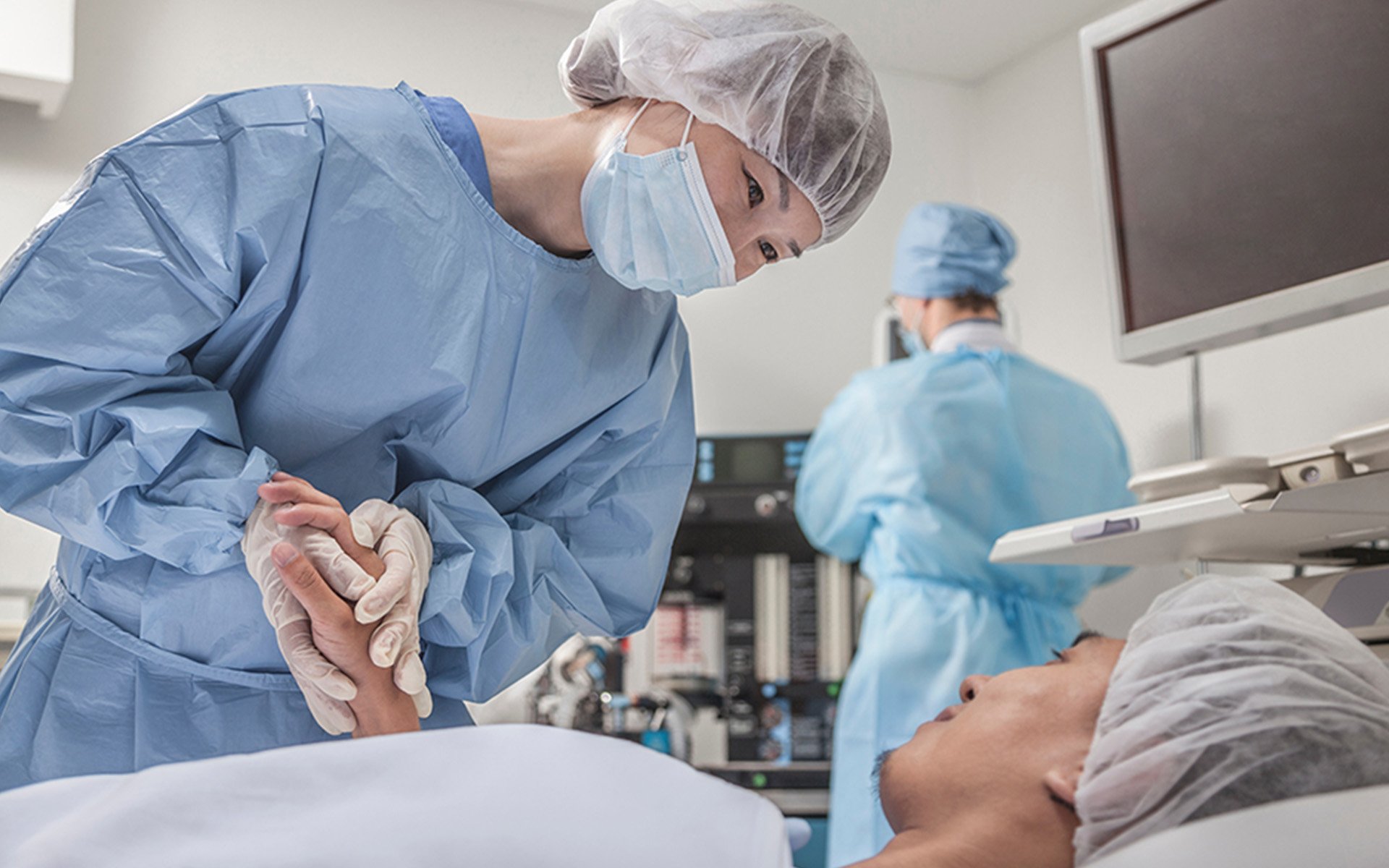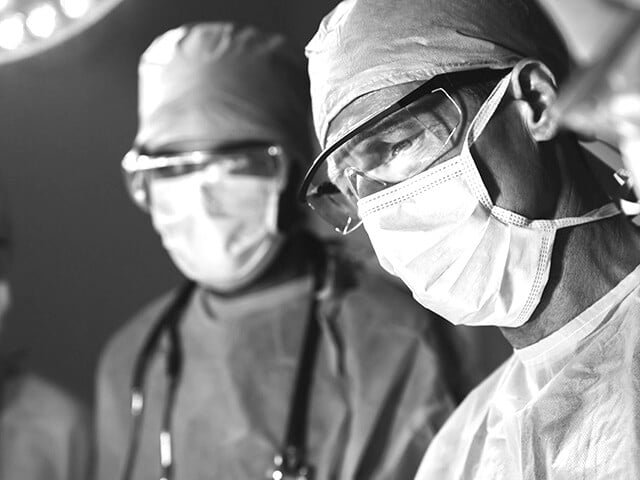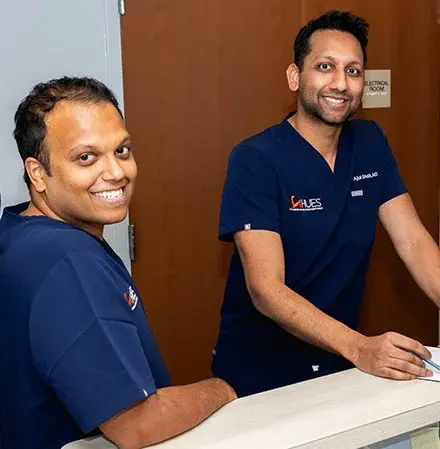Post-mastectomy pain syndrome, or PMPS, refers to lingering pain in the chest wall, armpit, or arm following a mastectomy and other breast-conserving surgeries. Between 20 and 40 percent of post-mastectomy patients develop PMPS after surgery.
Post-Mastectomy Pain Syndrome (PMPS)
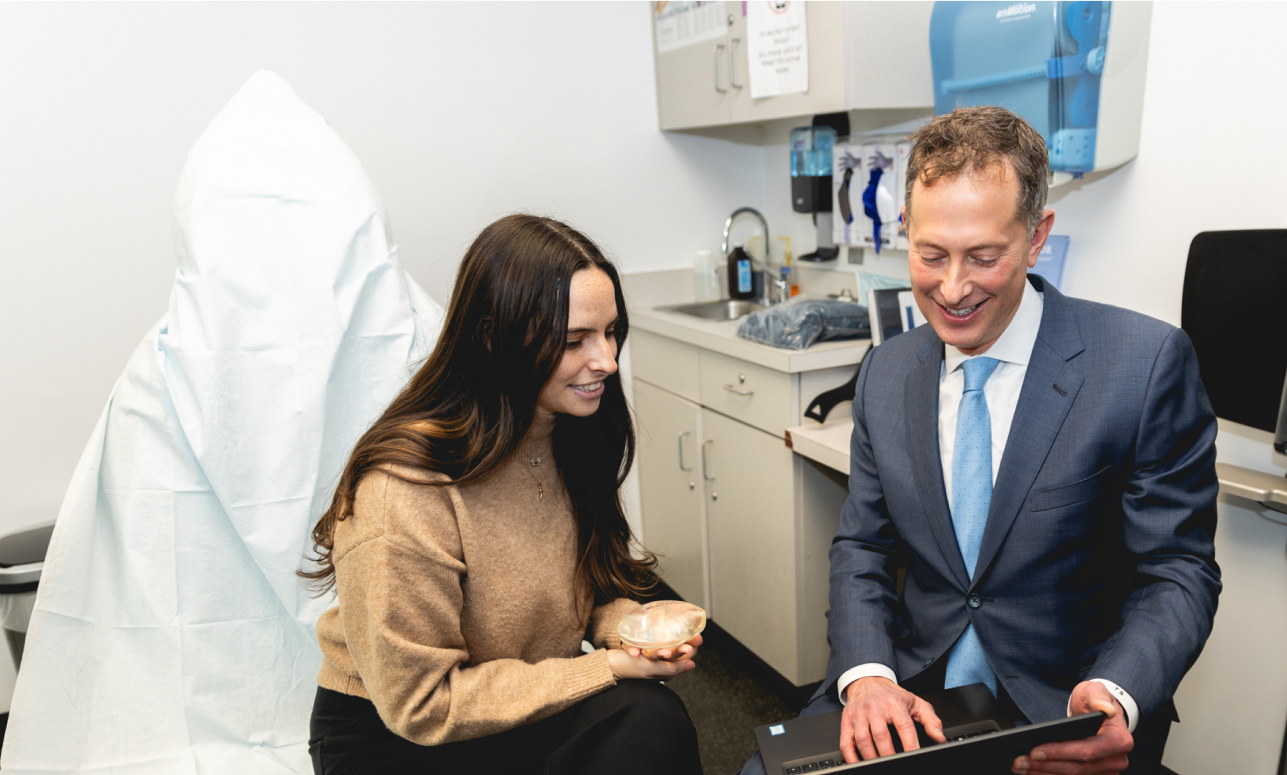
Symptoms
Post-mastectomy pain is often described as burning, aching, or shooting. While most women report that their PMPS symptoms are mild, it’s still a condition that may require daily self-care and treatment.
Causes
Experts believe that post-mastectomy pain syndrome results from nerves damaged during breast surgery. Nerve damage is a common side effect of surgery, often resulting in pain and loss of sensation that can manifest long after other surgical effects have subsided. Some patients will experience post-mastectomy pain immediately following breast surgery, while others may not develop symptoms of post-mastectomy pain syndrome until weeks or even months after surgery.
Risk Factors
There are several factors that may increase the risk of developing PMPS, including:
Age: Older people may be more at risk for developing PMPS as the risk of chronic pain increases with age.
- Type of surgery: PMPS is more likely to occur after a mastectomy than after a breast-conserving surgery (such as a lumpectomy).
- Cancer type: People with certain types of breast cancer, such as inflammatory breast cancer, may be more at risk for developing PMPS.
- Previous history of chronic pain: People who have a history of chronic pain, such as back pain or headaches, may be more at risk for developing PMPS.
- Pre-existing nerve damage: People with pre-existing nerve damage, such as from diabetes, may be more at risk for developing PMPS.
- Psychological factors: People who experience high levels of stress or anxiety after surgery may be more at risk for developing PMPS.
Diagnosing PMPS
To diagnose PMPS, a healthcare provider will typically perform a physical examination and review the patient's medical history. They may also ask the patient to describe the location and intensity of their pain, as well as any other symptoms they are experiencing. In some cases, additional tests may be needed to diagnose PMPS, including:
- Imaging tests: X-rays, CT scans, or MRI scans may be used to evaluate the breasts and surrounding tissues for any abnormalities or injuries that may be causing the pain.
- Nerve conduction studies: These tests measure the speed and strength of nerve signals to help determine if there is any nerve damage.
- Psychological evaluation: A mental health professional may be consulted to assess the patient's mental health and evaluate the impact of psychological factors on the pain.
Treatment for Post-Mastectomy Pain Syndrome
Post-mastectomy pain syndrome, if left untreated, can negatively impair your mental health and limit arm mobility. It is important to discuss any concerns about PMPS with a healthcare provider before undergoing breast surgery.
Many patients have had success using non-surgical treatment options for PMPS. In some cases, your doctor may recommend a combination of conservative and surgical approaches to help you regain sensation and reduce pain. Conservative treatments for post-mastectomy pain syndrome include:
- Physical therapy: Using strengthening exercises and massage, regular physical therapy can help reduce pain by targeting myofascial trigger points.
- Medications: Medications like antidepressants, pain relievers, and anti-epileptic prescriptions may be prescribed to ease symptoms of PMPS.
- Integrative therapies: Acupuncture, massage, and yoga may help reduce PMPS symptoms and promote mobility.
- Nerve blocking: Nerve blocking is a method of treatment that provides immediate but temporary pain relief. Nerve blocking works by injecting an anesthetic right into the damaged nerves to “block” pain signals and is often used as a diagnostic tool prior to nerve-repair surgery.
Surgical Treatments for Post-Mastectomy Pain Syndrome
At the Institute for Advanced Reconstruction, we provide surgical nerve treatments for patients with PMPS. Our surgeons are experts at treating nerve damage from a wide variety of trauma and injuries, including surgically induced neuropathic pain and PMPS. A nerve surgery typically begins with a nerve block to help diagnose the cause of the pain. Depending on the extent of your nerve damage, your surgeon will likely perform one or more of the following procedures:
- Nerve repair: surgically reconnecting the ends of a damaged nerve.
- Nerve transfer: a healthy nerve is rerouted and connected to a nearby damaged nerve, restoring function and sensation.
- Nerve grafting: a piece of "donor" nerve is taken from another area of the body and used to bridge a gap between two nerve ends.
Neurolysis: removes scarring from an injured nerve to encourage nerve growth. - Autologous fat grafting: When fat from other areas of the body is grafted to the breast area to provide additional cushioning and anti-inflammatory benefits.
- Breast reconstruction surgery: if you are interested in restoring shape and volume to your breasts after a mastectomy, your surgeon may elect to do this at the same time as a PMPS procedure.
Typically nerve surgery is an outpatient procedure performed under general anesthesia. Nerve endings grow at a rate of approximately one inch per month, so it can take some time for you to fully recover after a nerve surgery. Your surgeon will schedule follow-up appointments to determine how your nerves are regenerating. Expect to participate in physical therapy during the recovery period to keep your nerves, muscles, and tendons active and flexible.
Contact Us Today
Our Doctors
The surgeons at The Breast Center of New Jersey, a division of The Institute, are leaders in treating cancerous and benign breast disorders. Our world-renowned and nationally recognized surgical team is experienced with advanced biopsy procedures, making prevention, screening, treatment, and recovery for common breast disorders as streamlined and straightforward as possible.
Locations
Insurance Information
The Institute participates in a wide range of insurance plans, including those listed below. However, each physician has their own accepted insurance and hospital affiliations. Before scheduling an appointment, please contact your insurance carrier to confirm your provider is in-network.
If we are not an in-network provider, our friendly insurance specialists will help you find the most coverage available for your treatment.
- Horizon Blue Cross Blue Shield of New Jersey
- Medicare
- Railroad Medicare
- Aetna
- Cigna
- United Healthcare
- Oxford (Freedom, Liberty)
- MagnaCare

%201.svg)







-min.png)
.webp)








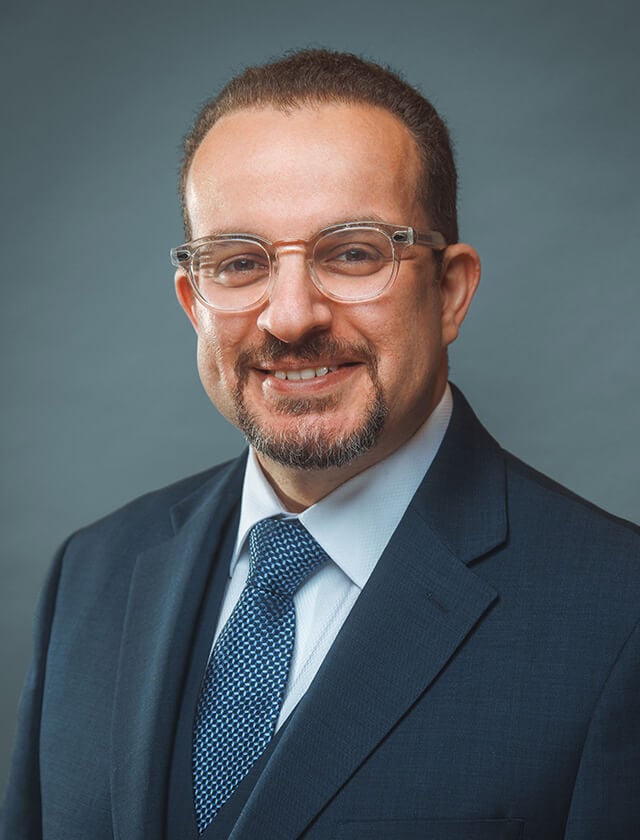
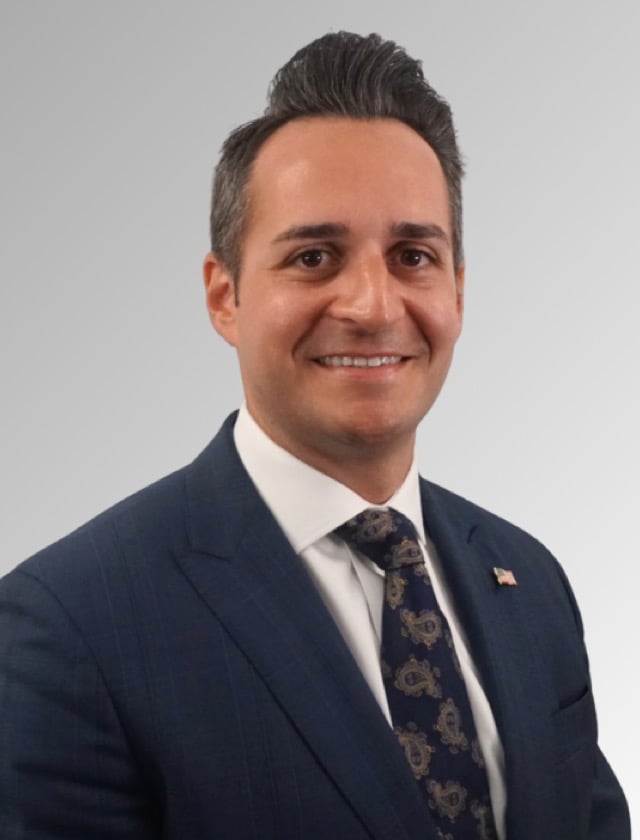











-1.jpeg)


.jpg?width=439&quality=high)


